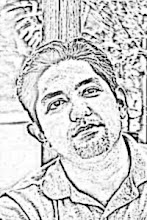Selye was able to separate the physical effects of stress from other physical symptoms suffered by patients through his research. He observed that patients suffered physical effects not caused directly by their disease or by their medical condition.
Selye described the general adaptation syndrome as having three stages:
- alarm reaction, where the body detects the external stimulus
- adaptation, where the body engages defensive countermeasures against the stressor
- exhaustion, where the body begins to run out of defenses
There are two types of stress: eustress ("positive stress") and distress ("negative stress"), roughly meaning challenge and overload. Both types may be the result of negative or positive events. If a person both wins the lottery and has a beloved relative die on the same day, one event does not cancel the other — both are stressful events. Eustress is essential to life, like exercise to a muscle, however distress can cause disease. (Note that what causes distress for one person may cause eustress for another, depending upon each individual's life perception.) When the word stress is used alone, typically it is referring to distress. Serenity is defined as a state in which an individual is disposition-free or largely free from the negative effects of stress, and in some cultures it is considered a state that can be cultivated by various practices, such as meditation, and other forms of training.
Stress can directly and indirectly contribute to general or specific disorders of body and mind. Stress can have a major impact on the physical functioning of the human body. Such stress raises the level of adrenaline and corticosterone in the body, which in turn increases the heart rate, respiration, and blood pressure and puts more physical stress on bodily organs. Long-term stress can be a contributing factor in heart disease, high blood pressure, stroke and other illnesses.
The Japanese phenomenon of karoshi, or death from overwork, is believed to be due to heart attack and stroke caused by high levels of stress.
The link between emotions and physical health is further supported by this paragraph from James A. Duke's The Green Pharmacy Herbal Handbook about the research of Dean Ornish, M.D:
Coping with stress
Individuals can respond very differently to the same stressor; any given situation can cause eustress in one person and distress in another. This happens because of differences in physiology and life circumstances, as well as different methods of stress management. Methods of coping that work well in childhood situations often become ingrained and habitual, and often follow the child into adulthood. In the adult world, these skills can be quite inappropriate, and stress heightens as the person clings to obsolete behaviors. However, new skills can be learned, and poor coping methods replaced. There are currently many classes, books, and seminars available to help people develop better habits of managing stress.
Other approaches to dealing with stress include The Alexander Technique, Shiatsu, T'ai Chi Ch'uan, yoga and meditation. For example, when Selye reviewed the physiological changes measured in practitioners of transcendental meditation (TM), he concluded that such changes were the opposite of the body's reaction to stress. The therapeutic effect of TM was most distinct in people whose coping skills were poorly adapted to the stress of daily life.
Folklore of stress
About the time of Selye's work, the gradual realization dawned that such concepts as anxiety, conflict, tiredness, frustration, distress, overwork, pre-menstrual tension, over-focusing, confusion, mourning and fear could all come together in a general broadening of the meaning of the term stress. The popular use of the term in modern folklore expanded rapidly, spawning an industry of pop psychology, self-help, personal counselling, and sometimes quackery.
The use of the term stress in serious recognized cases such as those of post-traumatic stress disorder and psychosomatic illness has scarcely helped clear analysis of the generalized 'stress' phenomenon. Nonetheless, some varieties of stress from negative life events, or distress, and from positive life events, or eustress, can clearly have a serious physical impact distinct from the troubles of what psychotherapists call the "worried well".

